Jane Ingram Allen
Made In Taiwan
Chiayi County
Feb. 21– Mar. 6, 2005
 Host
Organization: Art Site of Chiayi Railway Warehouse
Host
Organization: Art Site of Chiayi Railway Warehouse
Chiayi City Cultural Affairs Bureau
275, Jhongsiao Rd., Chiayi City 600, Taiwan
Contact Person: Lin chih-chin
Tel:(05)2327477 (05)2788225-510
Website: http://www.taiwanfun.com/south/chianan/recreation/0303/0303wnArtSite.htm
Email: mimicry@cabcy.gov.tw
We have arrived in Chiayi via a 3 1/2 hour train ride. It seems interesting
that we have begun our journey in Taipei's main train station arriving
at Chiayi station, and we are staying and working right next to the old
railway station with many trains coming and going. The day we arrived
we had a meeting to discuss our needs and talk with the volunteers and
staff. We are staying in the Railway Art Warehouse, and the facilities
are a bit unusual but functional.
We unpacked and when out shopping for the lantern making two-day workshop
that was to follow the next day. Jane is planning an installation of 100
house-shaped lanterns to be built with wire mesh dipped in paper pulp
and involving the participation of many community people. It was
a surprise to see that the Chiayi Railway Art Warehouse logo is also a
house shape just like the lantern that Jane had been planning. While
shopping for materials, we purchased a roll of wire mesh, and we needed
to purchase scissors to cut it. We stopped by a shop that had many interesting
tools and purchased two pairs of scissors that were hand forged by a craftsman
who is no longer living. These special scissors cut so well, and we will
treasure them as fine tools.
Following a beautiful lunch at a restaurant above a traditional herb shop
where we enjoyed the great food and traditional music played by one of
the employees, we visited an artist's home who lives at the base of the
mountains. He has a beautiful garden that extends up the mountain
with many paths. We will return here to pick many of the Chiayi plants
that Jane will use in making paper for her Chiayi site maps.
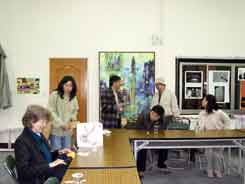
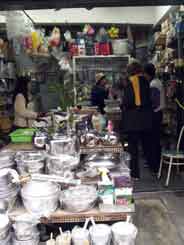
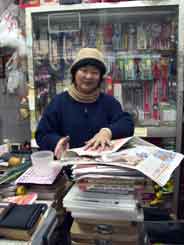
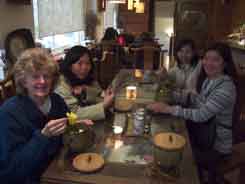
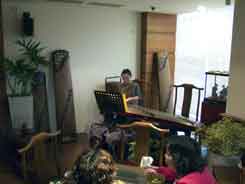
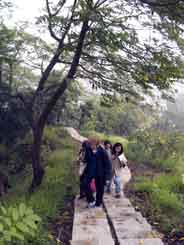
The first day of the workshop went very well as we had many volunteers to help cut the wire into rectangles for the sides and tops of the house-shaped lanterns that Jane is planning to install for the Lantern Festival tomorrow night. While some were cutting, others were dipping the small wire screen into the pulp and then adding decorations. In all, we needed to make 600 pieces to have 100 houses--our goal for the installation. The pieces were hung up and laid out in many places to dry. Many of the pieces are very creatively done. Many volunteers from the community came by the studio to help, and also most of the other artists with studios here also got involved in the project. A reporter from the newspaper interviewed Jane and took photos. Later, a television station reporter and camera crew also interviewed Jane about her work in Chiayi. At the end of the day of hard work, Jane put together one house from the pieces that were dry. She put a lighted candle in it so everyone could see how the houses would look in the installation tomorrow night.
After walking back from the local grocery store later that evening, Jane decided to put the paper-dipped pieces inside the studio room to dry. It was a good idea as it did get wet during the night. Most of the pieces are dry now, and Wednesday will be a day for building houses. The community participants will be back to help and are excited about putting together the houses for the Lantern Festival. We are planning to install the 100 house-shaped lanterns on the old rail platform by the art warehouse in Chiayi. The installation is planned for when it gets dark, and hopefully all of the 100 houses will be ready to go by about 6 PM Wednesday evening for the traditional Chinese New Year Lantern Festival celebration.
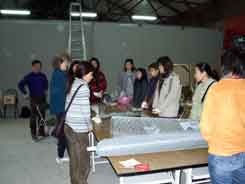
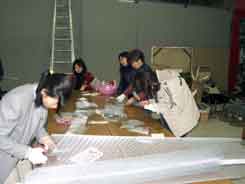
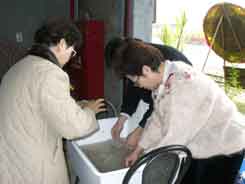
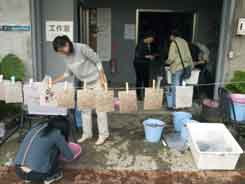
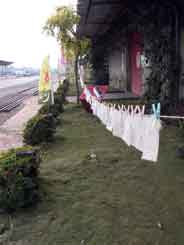
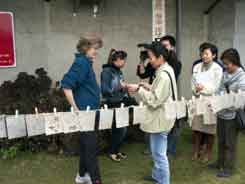
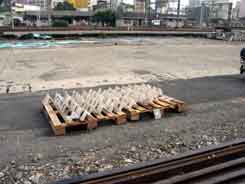
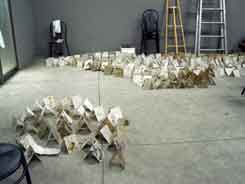
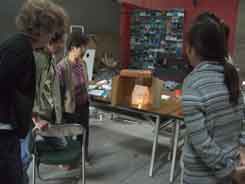
The second day of the workshop went very well. We had some new faces who helped build the houses from the paper walls that were made the day before. Some people made very creative houses while others made more traditional ones. All together there were 117 houses made. While making the houses a train engine and freight car pulled up in front of the studio to unload material for the army. this is truly is a railroad art center. When it got dark we placed candles on the old train station platform and then carried the houses there to place over the candles. Jane's concept was to set each house approximately one half a meter apart. By doing so there would be two rows of houses. Once the candles were lit the houses were quite beautiful. It was after they had been burning for a while, that some of the volunteers suggested that the houses be grouped together to create villages and connected buildings. We then had some fun making small villages with the houses. It turned out to be also very beautiful. We realized another cultural difference from this change from single houses being displayed to grouping them together. In the West we like to have a lot of space, whereas in Asia people live in close quarters to each other and feel more comfortable with many people around them. We closed the evening by having the traditional "yuan chiao" for the Lantern Festival at a volunteers home. Lantern Festival the 15th day after the Chinese New Year is the official end of the New Year's celebration time, and this food is always eaten on this day. "Yuan Chiao" is a sticky rice ball with a sesame or peanut filling. It was a great ending to Lantern Festival Day in Chiayi to be invited to celebrate and have this traditional food with a local family.
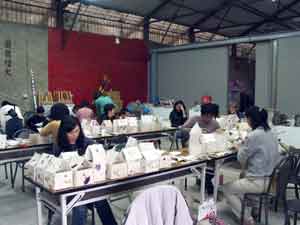
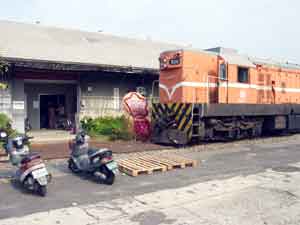
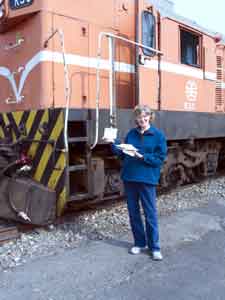
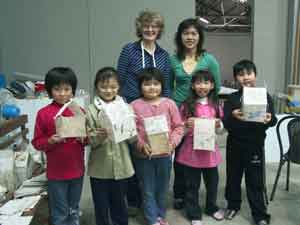
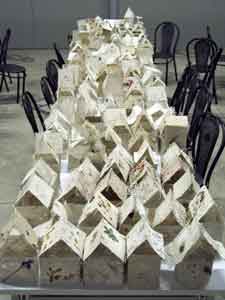
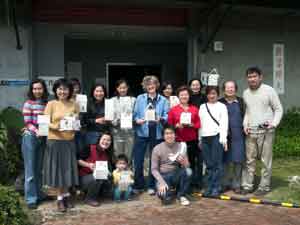
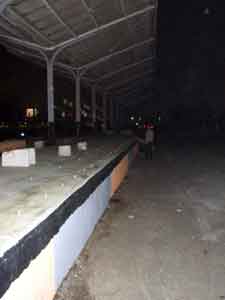
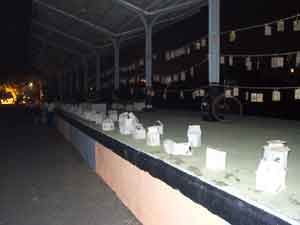
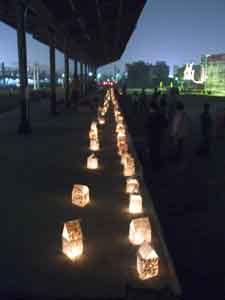
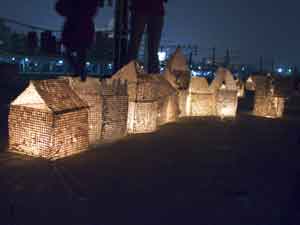
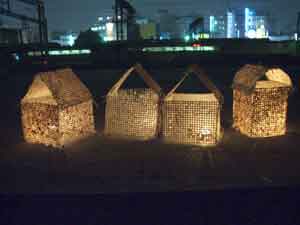
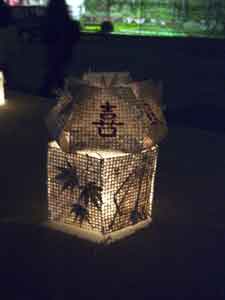
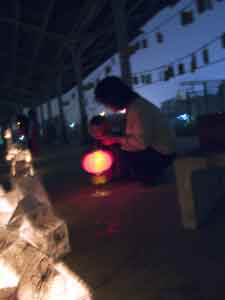
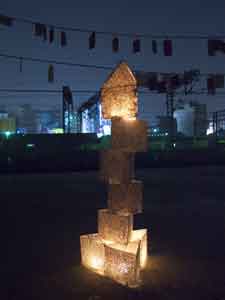

On the third full day in Chaiyi we picked plants and installed the exhibition. Many volunteers from the Wilderness Society went with us to help in picking plants. We went to the home of Mr. Tsai who is head of the Wilderness Society to gather plants. His home is also his pottery studio and he has beautiful countryside at the edge of the mountain around his home. We were able to gather six plants that we think will make interesting paper, including the plant that is the Chiayi city flower. Most of these we will be using the bark rather than the leaves.
After picking the plants, we also enjoyed an excellent lunch at a restaurant
on a fishing pond. The restaurant was located outside the city and
had many interesting things to see. The food was excellent. The owner
of the restaurant also owned a 1986 VW with some modifications, but it
appeared to have many of the original parts. There was also a shop that
made cute animal-shaped shoes and slippers.
After eating, we returned to the studio and began installing Jane's "Made in Taiwan" exhibition. Jane and some of the volunteers worked on laying out the house lanterns in a pattern of old Chaiyi on the warehouse floor. Tomorrow some reporters will come for a preview of the exhibition that opens on the next day.
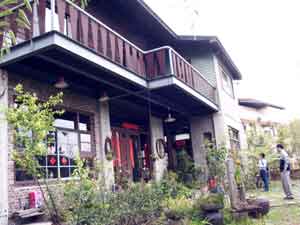
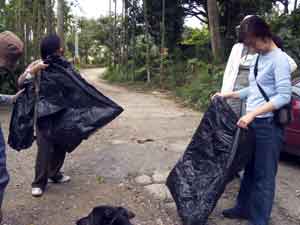
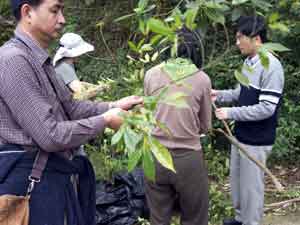
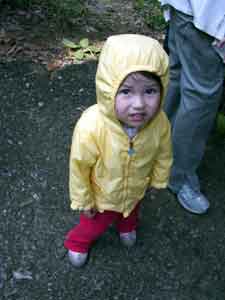
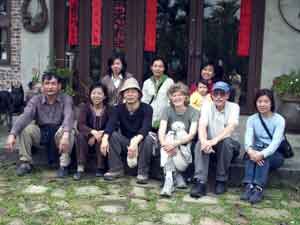
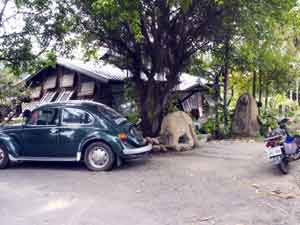
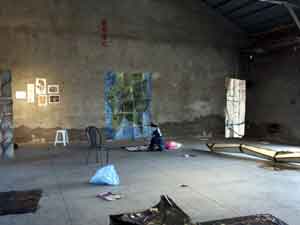

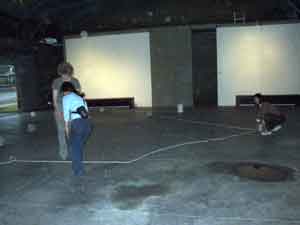
The Chiayi installation of Jane's artwork from the "Made in Taiwan" project and the indoor installation of the Chiayi lantern houses were completed in the early morning. The installation site in an old railway warehouse really works well, and the site maps and many house lanterns laid out in the shape of old Chiayi city are interesting in this space. The news conference was very successful with many reporters attending and the director of the Chiayi Culture Bureau as well as other visitors and volunteers. Jane spoke to the group about her work, and the candles in the house installation were lighted. We were also able to show the reporters the beating and cooking of the plant fibers as part of the process of making paper. During the day, with the help of volunteers we were able to complete the removal and cutting up of the bark and plant fibers that we had collected in Chiayi. Then the cooking process could begin. By the end of the day, all but one of the plants were cooked, washed and ready to beat into a pulp usable for paper. We finished the day with a dinner delivered to the studio from a local Japanese restaurant.

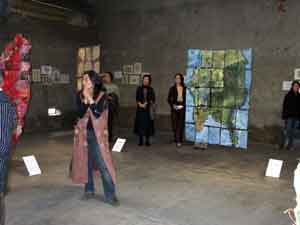
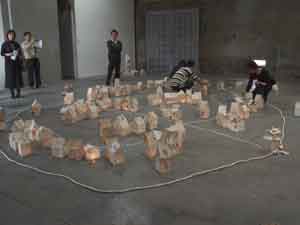
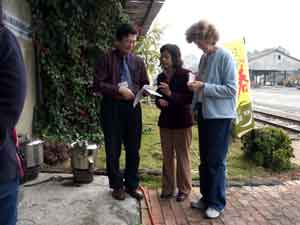
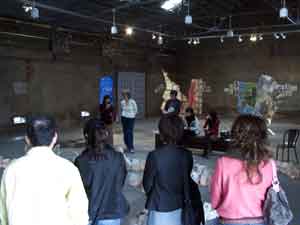
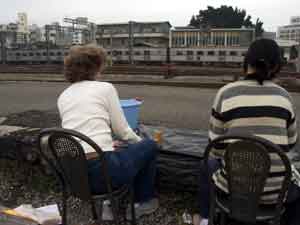
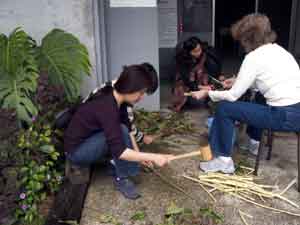
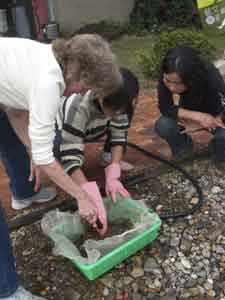

On Saturday we had the opening reception for Jane's exhibition in Chaiyi with her site maps and the lanterns made at the Chaiyi Lantern workshop. It was a nice reception with three of the artists speaking to the group about how important is was for Jane to be here and share her ideas and artwork with the people of Chaiyi. Following the opening we had a two hour paper making demonstration. There were over 50 people who got to make paper and understand more about the process. Many families with children of all ages participated in this activity. The community works and Jane's Chiayi site map will all be exhibited next Saturday at the closing party, and people will be able to take their handmade paper artworks home with them.
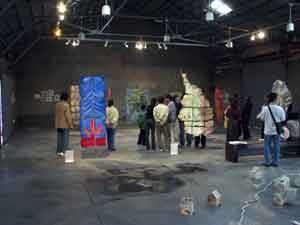
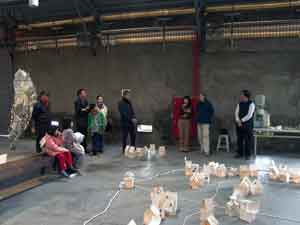
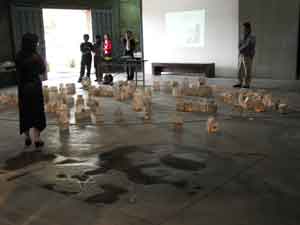
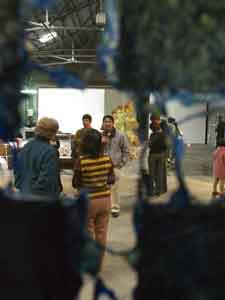

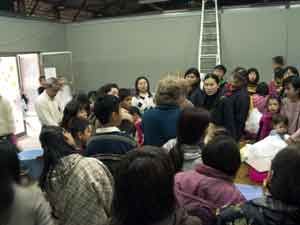
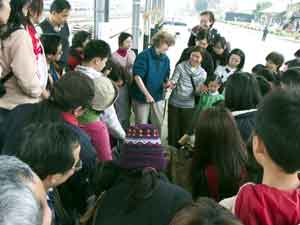
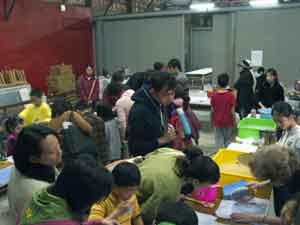

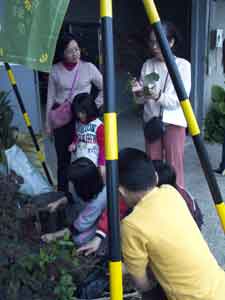
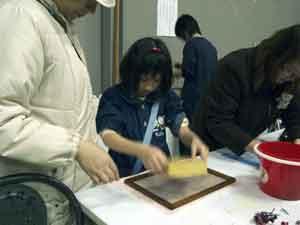
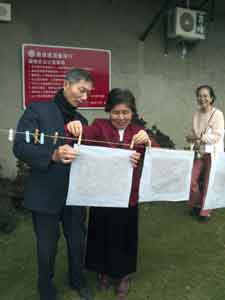
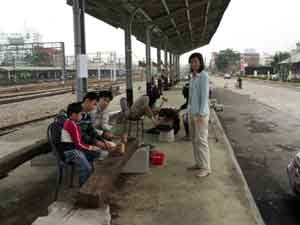
Today, Sunday Jane focused on making paper from the plants that were cooked. We now have seven plants that we have tried in Chaiyi. Most are very good for paper making. One that is questionable is known by its American name of "Kudzu." It is the plant that was imported into the US in the 1930s as an ornamental and then used to prevent soil erosion in the Southern states. We had a number of people visit the studio and exhibition today. We ended the day with a wonderful dinner hosted at a volunteers home.
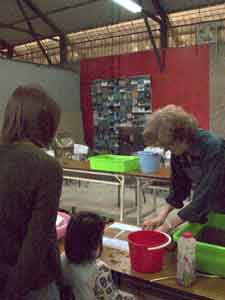
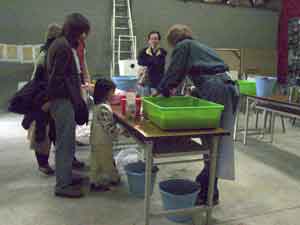
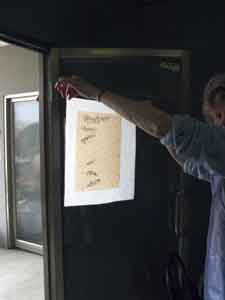
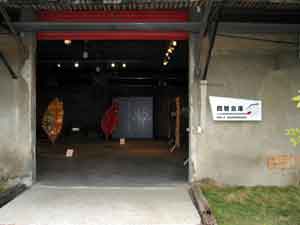
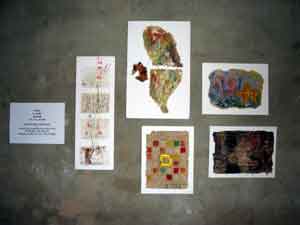
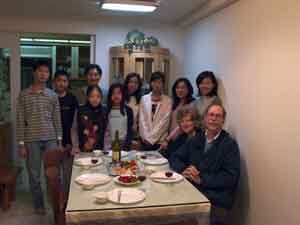
This morning Jane continued to make paper for the seven plants that we prepared from the Chaiyi area. Some of the ones that were tried yesterday, including Kudzu, turned out to be good papermaking plants. In the afternoon we left Chaiyi on a trip with the other artists from the Chiayi Railway Art Warehouse for the Taiwan Forestry Research Institute's Chung_Pu Research Station. It was a one hour drive north and to the coast. This station's mission is to study coastal plants that would be both salt and wind resistant. They are trying to introduce native plants to areas such as Penghu that has no native plants left. These plants must be able to withstand the harsh environment of a sea coast. As we were given a guided tour by Chief Ho, we recognized many plants that we had used in Kinmen and Penghu. The weather reminded us of both Kinmen and Penghu, cold and windy. We are pleased to get back to the buildings after our walk. After dinner, some of those who were with us played cards while others sang with karaoke. Here in Taiwan, they call it KTV.
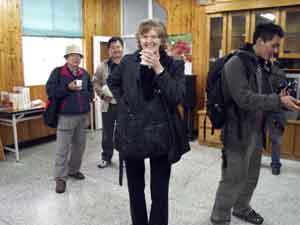
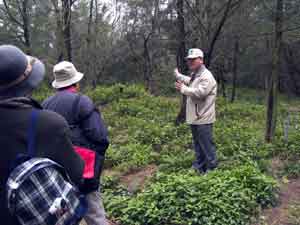

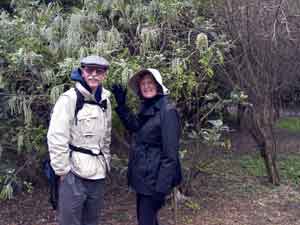
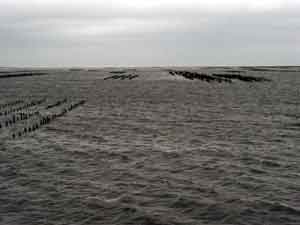
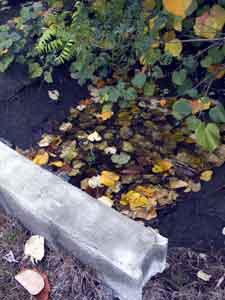
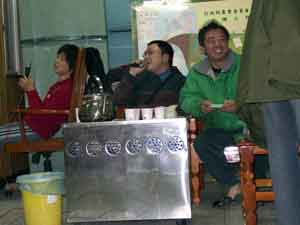
We woke up to a nicer morning at Chung Pu Forest Research Station, with some sunshine, and the wind was not as strong. I took some pictures of the Forestry buildings and other place we stayed. It turned out that we slept on a "Freedom" mattress. We had breakfast and then went for a walk on the Center's trails. Jane collected some fallen leaves and other natural materials to use in her work. Afterwards we went into the kitchen and talked with some of the other artists. One of the artists asked if he could sketch Tim's portrait. About thirty minutes later we were told we were leaving, and he was going to continue later. When we returned Jane continued to work on her Chiayi site map. In the evening one of the volunteers, Meg took us to dinner at American Pie, a restaurant run by an American living in Chiayi. We had Mexican food, a large chocolate milk shake and apple pie for desert. All of it was very good.
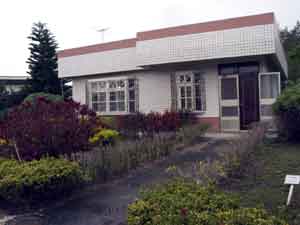
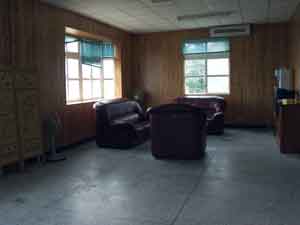

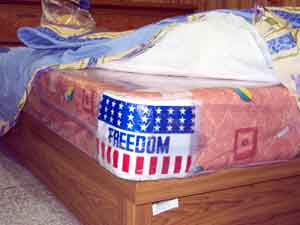
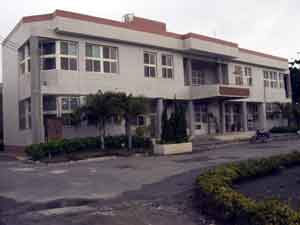
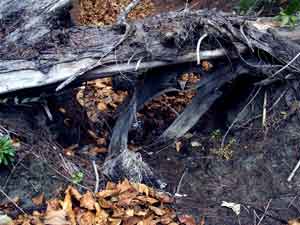
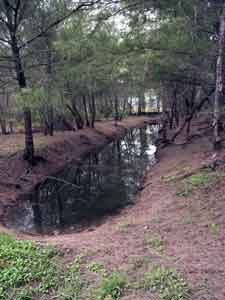
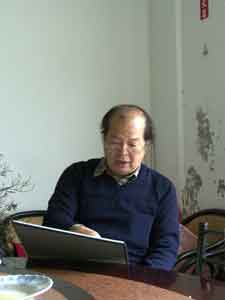
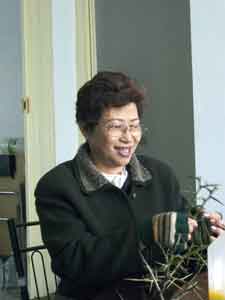
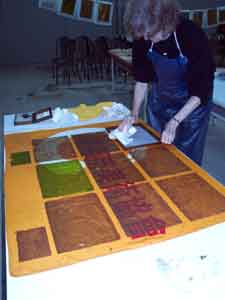
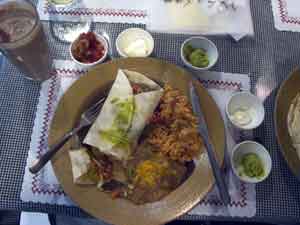
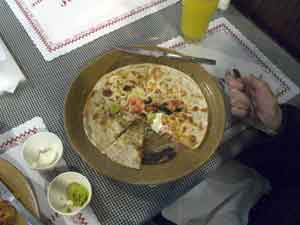
The day was a quiet one with two volunteers, Meg and Wendy,working with Jane and making paper. Jane continued to work on her Chiayi site map. Today outside the studio the railroad backup freight cars were loaded with military equipment. The cars were parked right in front of the studio for the loading by military personnel. It again reminds us of how close we are to the railroad.
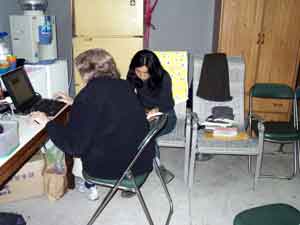
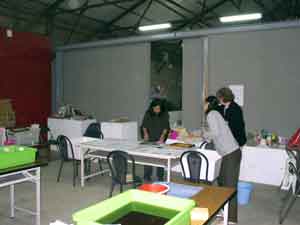
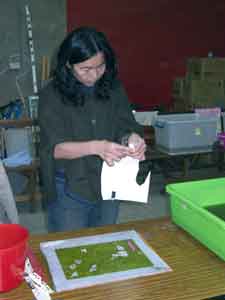
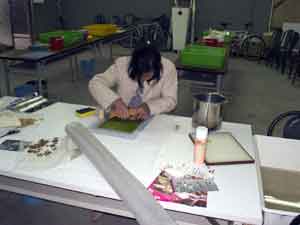
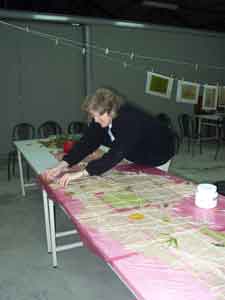
Jane continued to work on her Chiayi site map. By the end of the day she had finished one side and will be ready to work on the other side after the first side dries overnight. Ms. Lee and her child stopped by. She is doing the translation for the Chiayi papermaking plants book. We went to lunch with Wendy, Meg and her husband to a very nice seafood restaurant. They served chicken feet for hord'oevers, it was not something you would normally be able to order in the US. Afterwards we went to an old wine making facility that is being remodeled as an arts facility. One of the warehouse spaces was being used for exhibit purposes. In driving around Chiayi City, we went by a traffic circle that had a small replica of the Statue of Liberty in the center. We knew that Chiayi had a copy, but had not seen it until now. Jane also had an unexpected visit from a Junior High School class. They enjoyed seeing how paper was made and seeing Jane working on her Chiayi site map. We also have to do those mundane things such as washing clothes. The Railway site has a washing machine but no drier. Meg took us to a 24 hour wash house to dry our clothes. It was an interesting cultural experience. People leave their clothes there, and there is no concern that they will be stolen. The wash house also includes a large container of detergent for customers to use for free.
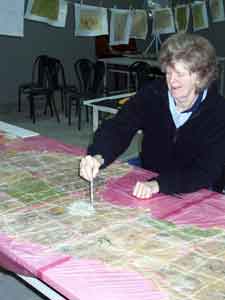
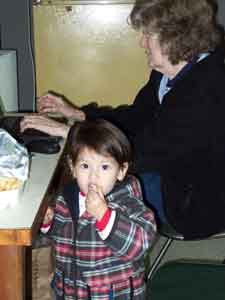
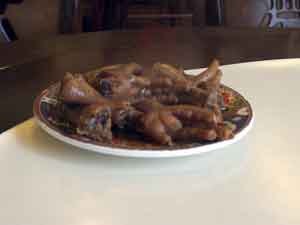

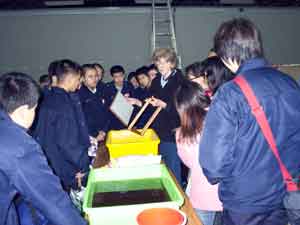
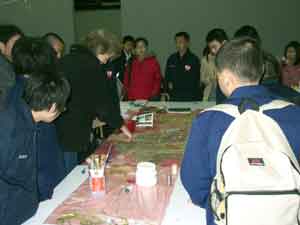
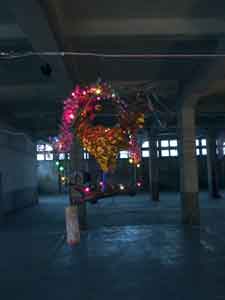

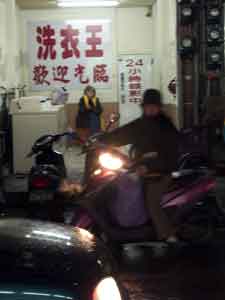
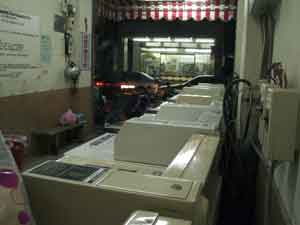
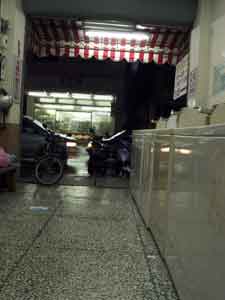
Return to Made In Taiwan home page
(updated on March 3, 2005 )
For more information on Jane, click on one of the icons below







